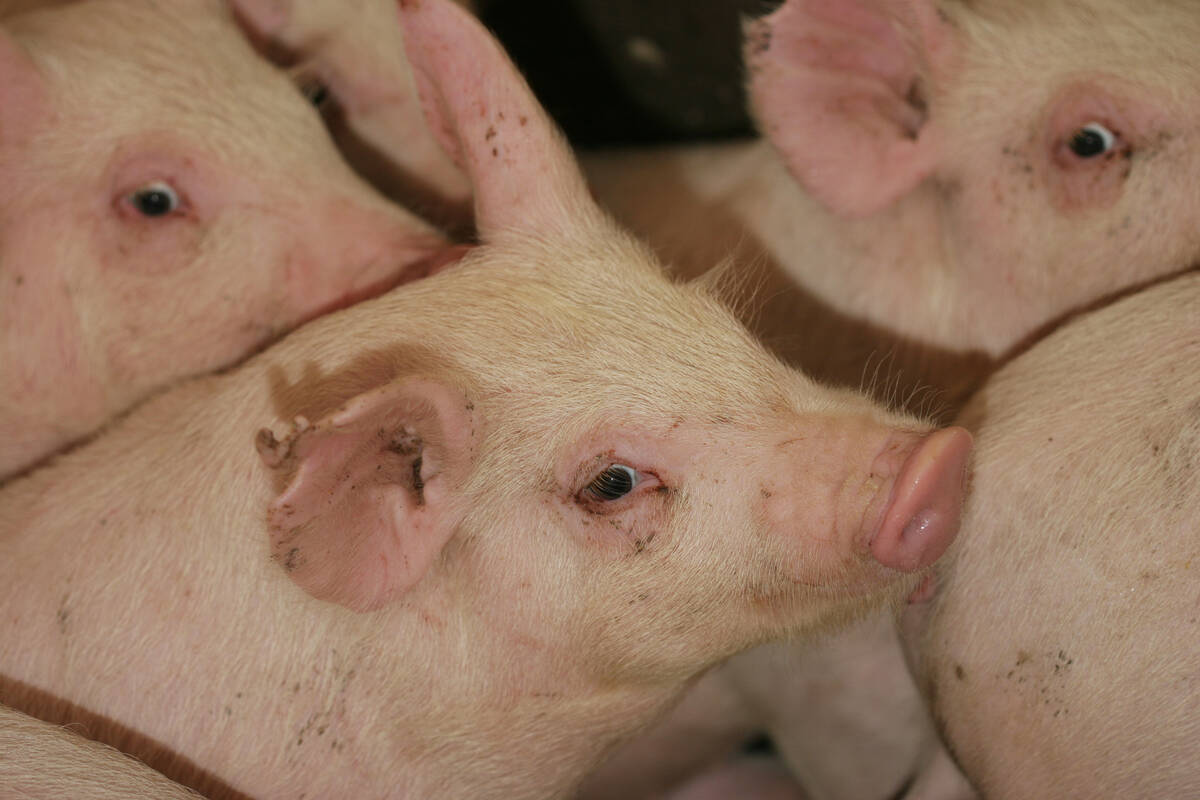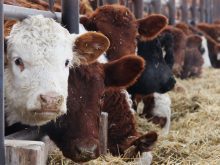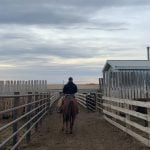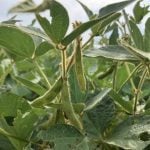OLDS, Alta. – A purebred show that caters to commercial beef producers is the aim of a Gelbvieh weekend.
Held in Olds Dec. 6, the event was part of the Alberta British Columbia Gelbvieh Association annual meeting. It featured a commercial Gelbvieh heifer pen show of replacement females that were uniform in size and consistent in quality.
For grand champion winners Kelly and Colleen Brittain of Falun, Alta., it was a way to show off their commercial beef and purebred program. They enter shows regularly as a promotional tool. The heifers for this event were pulled straight from their herd to promote the kind of cattle they are raising.
Read Also

The Western Producer Livestock Report – September 25, 2025
The U.S. national live price average for barrows and gilts was $81.21 Sept. 17. It was $78.37 Sept. 9. U.S. hogs averaged $106.71 on a carcass basis Sept. 17, up from $106.10 Sept. 9.
For them, the greatest attribute of the breed is a quiet temperament because Kelly is working alone with their 180 cows while Colleen works off the farm.
They introduced Gelbvieh to their farm when their two children were involved in 4-H and needed easy handling cattle.
“In 1981 we bought our first Gelbvieh and we haven’t looked back. We have no thoughts about going out of Gelbvieh,” said Colleen.
“The first year we went into Gelbvieh, it took the kids two weeks to halter break them,” she said.
The cattle also have to earn a living for these third generation ranchers. The family has an annual bull sale in March, hoping to swing more commercial producers over to the breed.
Besides the temperament, the Brittains like the efficiency of these moderate sized cattle that wean big, high grading calves every year.
“You have to be so efficient now to make a dollar,” said Kelly.
Reserve champions were Tony and Kathy Kamlah of Lacombe, Alta., who had never entered a show before. They entered two pens of three and also pulled them straight out of their herd.
They, too, started using Gelbvieh 14 years ago because the cattle were quiet and productive.
“I really like their disposition. We’ve never had a mean one,” said Kathy.
Their children were involved in 4-H and used them as their projects without difficulty.
First-time judges Matt and Ronda Tees sorted the cattle according to what they want to see in a herd on their ranch at Lousana, Alta.
“It is a show focused on the commercial industry, which is what we do,” said Matt.
He and Ronda believe in giving customers what they want, which is a sound beef producing animal that pays its own way.
“In most herds, profit is determined by the average calf,” said Matt.
Therefore it is important the average animal is of high quality, fertile and capable of producing profitable calves for the beef business.
“On a ranch we need moderate, sound cows that look just like the others in the herd,” he said.
The beef business is all they do, so cattle must be productive and they seek all means possible to cut costs.
There is added income from a 10 year partnership raising bulls for Soderglen Ranches of Airdrie, Alta., which has built a strong hybrid sire breeding program.
The Tees calve in June because cows’ greatest energy needs are at calving and lactation. Calving on a green, nutritious pasture holds down the feeding bill. Calves are weaned in November and are big enough in spring to go back on grass, providing further savings on feed bills.
The show was followed by a purebred and commercial sale of 28 lots, which totalled $68,150 and averaged $2,434 on a selection of open and bred heifers and bulls.
The high seller was a bred heifer from Vern and Vivienne Pancoast of Redcliff, Alta. It sold for $6,200 to Gary and Judy Pahl of Towerview Ranch at Medicine Hat, Alta.















